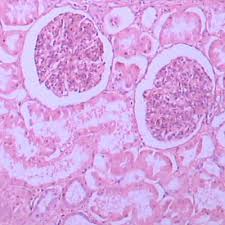
Nature of work
He/she develops and maintains liaisons and effective working relations with groups, individuals, agencies, and the public to encourage cooperative management strategies or to develop information and interpret findings.Also, he/she uses computers to store, process and analyze data.
He/she collects and analyzes biological data about relationships among and between organisms and their environment.
He/she studies aquatic plants and animals and environmental conditions affecting them, such as radioactivity or pollution.
He/she communicates test results to state and federal representatives and general public.
He/she identifies, classifies, and studies structure, behavior, ecology, physiology, nutrition, culture, and distribution of plant and animal species.
He/she prepares environmental impact reports for industry, government, or publication.
He/she represents employer in a technical capacity at conferences.
He/she plans and prepares biological research programs for government, research firms, medical industries, or manufacturing firms.
Environment of work
Working conditions for biologists vary widely from job to job. Most of them spend at least part of their time in laboratories, which are usually clean, well lighted, and well equipped. Many biologists spend some time in offices and classrooms. Depending on their area of specialization, biologists are also likely to do some fieldwork. They may also work in greenhouses or fields behind their laboratories. Although their basic workweek is often forty hours long, hours are sometimes flexible. Biologists usually spend extra hours completing research projects, writing up their findings, and reading to keep up with many new developments in their field.Biologists should have the patience to work on long-term research projects. At times they have to work under pressure. In addition, they should be able to work well alone or as part of a scientific research team.
Professional life
There are many possibilities for advancement in the field of biology, especially for those who have a doctoral degree. Some experienced biologists become directors of research teams. Some become managers or administrators. Those employed by colleges and universities can be promoted to the rank of full professor. They often write scientific articles and books. Many biologists advance by becoming experts in their special fields or by making important discoveries in their research. Some biologists develop laboratory devices, disease-resistant plants, or new drugs.Opportunities for those with bachelor's or master's degrees in biology are expected to be better than the opportunities for those with doctoral degrees.
Range of typical starting salaries: 35000 SYP plus potential bonuses.
Getting the job
A graduate from college with a bachelor's degree in biology, can get several kinds of jobs related to the field of biology. For example, he/she can become a sales or service representative, an inspector, or an advanced biological technician.A graduate usually need an advanced degree to become a biologist. He/she should major in one of the sciences in college and receive specialized training in a life science in graduate school. People who have earned a master's degree in the biological sciences are qualified for some jobs in teaching and applied research. He/she usually need a doctoral degree for a teaching and research position at a university or a job as an administrator. It generally takes four years to gain a bachelor's degree and another one or two years for a master's degree.
Skills
1) Science: using scientific rules and methods to solve problems.2) Reading Comprehension : understanding written sentences and paragraphs in work related documents.
3) Time Management : managing one's own time and the time of others.
4) Judgment and Decision Making : considering the relative costs and benefits of potential actions to choose the most appropriate one.
5) Critical Thinking :using logic and reasoning to identify the strengths and weaknesses of alternative solutions, conclusions or approaches to problems.
6) Active Listening : giving full attention to what other people are saying, taking time to understand the points being made, asking questions as appropriate, and not interrupting at inappropriate times.
7) Writing: communicating effectively in writing as appropriate for the needs of the audience.
8) Active Learning : understanding the implications of new information for both current and future problem-solving and decision-making.
9) Complex Problem Solving :identifying complex problems and reviewing related information to develop and evaluate options and implement solutions.
10) Equipment Selection : determining the kind of tools and equipment needed to do a job.
11) Persuasion : persuading others to change their minds or behavior.
Sources and references
If you need any further information on what is included in this file, you can visit the following websites: www.biologists.com, Non-profit organization that aims to advance and promote research in all branches of biology
jeb.biologists.org, The Journal of Experimental Biology,
www.aab.org.uk, Association of Applied Biologists
job-descriptions.careerplanner.com
Arab Standard Classification of Occupations, 2008, Ed. Arab Labor Organization.
